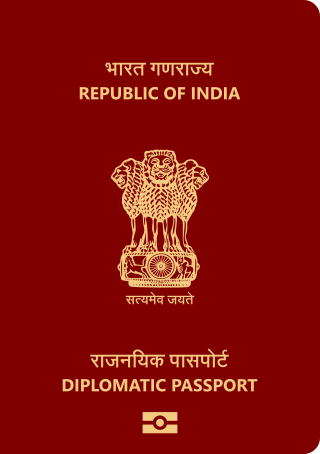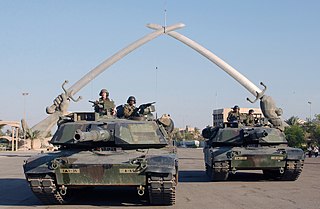
Diplomatic immunity is a principle of international law by which certain foreign government officials are recognized as having legal immunity from the jurisdiction of another country. It allows diplomats safe passage and freedom of travel in a host country and affords almost total protection from local lawsuits and prosecution.

Kofi Atta Annan was a Ghanaian diplomat who served as the seventh secretary-general of the United Nations from 1997 to 2006. Annan and the UN were the co-recipients of the 2001 Nobel Peace Prize. He was the founder and chairman of the Kofi Annan Foundation, as well as chairman of The Elders, an international organisation founded by Nelson Mandela.

The Vienna Convention on Diplomatic Relations of 1961 is an international treaty that defines a framework for diplomatic relations between independent countries. Its aim is to facilitate "the development of friendly relations" among governments through a uniform set of practices and principles; most notably, it codifies the longstanding custom of diplomatic immunity, in which diplomatic missions are granted privileges that enable diplomats to perform their functions without fear of coercion or harassment by the host country. The Vienna Convention is a cornerstone of modern international relations and international law and is almost universally ratified and observed; it is considered one of the most successful legal instruments drafted under the United Nations.

Terje Rød-Larsen is a Norwegian diplomat, politician, and sociologist.

Maurice Frederick Strong, was a Canadian oil and mineral businessman and a diplomat who served as Under-Secretary-General of the United Nations.
Benon Vahe Sevan was the head of the United Nations' Oil-for-Food Programme, established in 1996 and charged with preventing Iraq's government from using the proceeds from oil exports for anything but food, medicine and other items to benefit the civilian population.
Alexander Yakovlev was a long-serving tenured member of the United Nations procurement department who was involved in the Oil-for-Food Programme scandal and had other allegations of impropriety.

Zain Verjee is a Canadian journalist based in Nairobi and the Los Angeles area. She is a former CNN anchor and correspondent.

The International Day of Peace, also officially known as World Peace Day, is a United Nations-sanctioned holiday observed annually on 21 September. It is dedicated to world peace, and specifically the absence of war and violence, such as might be occasioned by a temporary ceasefire in a combat zone for humanitarian aid access. The day was first established in 1981 and first observed in September 1982 and is kept by many nations, political groups, military groups, and people.
Richard Roth is an American journalist, a CNN correspondent who covers the United Nations. He was the host of Diplomatic License, a weekly program that was devoted to United Nations affairs. Roth is a CNN "original" — one of the first employees when the network launched in 1980. He has covered a wide range of stories over the last 25 years, from the 1989 Tiananmen Square protests to the fall of the Berlin Wall and the first Gulf War.

A dispute exists over the legitimacy of the 2003 invasion of Iraq. The debate centers around the question whether the invasion was an unprovoked assault on an independent country that may have breached international law, or if the United Nations Security Council authorized the invasion. Those arguing for its legitimacy often point to Congressional Joint Resolution 114 and UN Security Council resolutions, such as Resolution 1441 and Resolution 678. Those arguing against its legitimacy also cite some of the same sources, stating they do not actually permit war but instead lay out conditions that must be met before war can be declared. Furthermore, the Security Council may only authorise the use of force against an "aggressor" in the interests of preserving peace, whereas the 2003 invasion of Iraq was not provoked by any aggressive military action.
Spying on the United Nations refers to acts of espionage committed by state against the United Nations.

Vitaly Ivanovich Churkin was a Russian diplomat. As a child actor, he starred in three films The Blue Notebook, Nol tri, and A Mother's Heart. Churkin served as Russia's Permanent Representative to the United Nations from 2006 until his death in 2017.

The deputy secretary-general of the United Nations is the deputy to the secretary-general of the United Nations. The office was created to handle many of the administrative responsibilities of the secretary-general, help manage Secretariat operations, and ensure coherence of activities and programs. The post was formally established by the General Assembly at the end of 1997.
The ceasefire attempts during the 2006 Israel-Lebanon conflict started immediately, with Lebanon calling for an immediate and unconditional ceasefire already the day after the start of the hostilities. Israel, however, strongly backed by the United States and the United Kingdom, insisted that there could be no ceasefire until Hezbollah's militia had been disarmed or removed from southern Lebanon. The United Nations Security Council held meetings throughout the conflict but failed to agree on a ceasefire resolution.

A United Nations laissez-passer is a diplomatic travel document issued by the United Nations under the provisions of Article VII of the 1946 Convention on the Privileges and Immunities of the United Nations in its offices in New York City and Geneva, as well as by the International Labour Organization (ILO).

Talal Al-Haj is an Iraqi journalist. He is the current New York/United Nations Bureau Chief for the Al-Arabiya news network.
The United Nations has been criticized for a variety of reasons, including its policies, ideology, equality of representation, administration, ability to enforce rulings, and ideological bias.

United Nations Security Council resolution 1595, adopted unanimously on 7 April 2005, after recalling its support for the sovereignty, territorial integrity and independence of Lebanon, the council established a commission to assist Lebanese authorities in their investigation of the assassination of former Prime Minister Rafic Hariri in Beirut on 14 February 2005.











